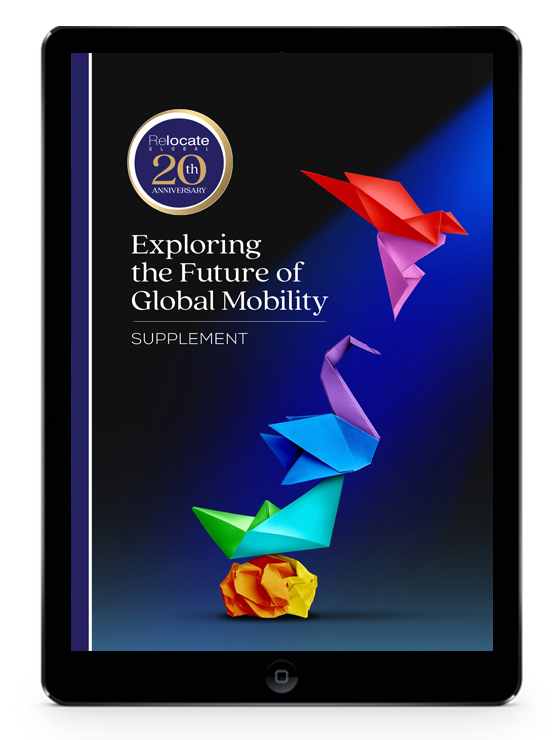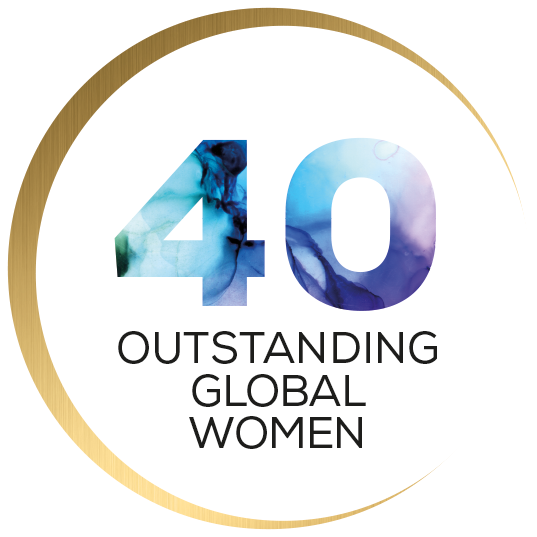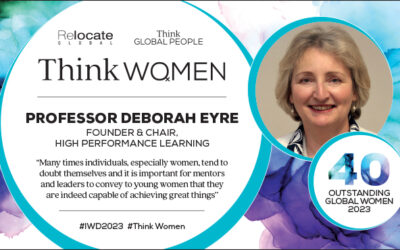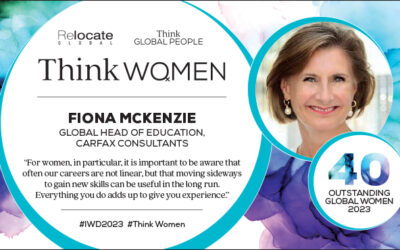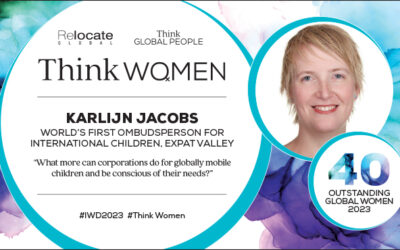Think Women
Siobhan Cummins | 40 Outstanding Global Women 2023
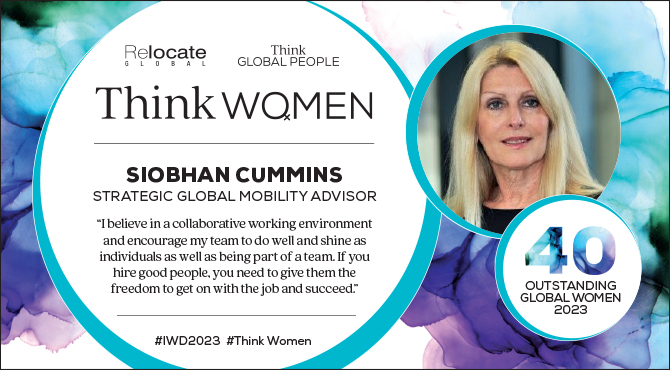
Valuing cross-culture collaboration
Siobhan Cummins has worked in Global Mobility for over 35 years and during this time has seen many changes in both the demographic of mobile employees and the increased complexity in global mobility programmes.
Siobhan is a seasoned global mobility professional with deep subject matter knowledge. She has worked in the industry as both a consultant and in-house practitioner. She has specialist expertise in global talent strategies, international reward, mobility programme transformation and optimisation, along with policy design and development. She also has a special interest in dual career and family issues and is a founder board member of the Permits Foundation.
“I believe in a collaborative working environment and encourage my team to do well and shine as individuals as well as being part of a team. “If you hire good people, you need to give them the freedom to get on with the job and succeed.”
Siobhan Commins, Strategic Global Mobility Advisor
“The world of mobility has evolved significantly over the past 30 years or so but since Covid has become even more complex with the ever-changing geopolitical situation, the war in Ukraine, increased compliance and the impact of new ways of working. “There has been a huge shift in the industry and the global mobility function is taking on a more strategic role within organisations as mobility is recognised as an enabler to solve critical talent shortages.”
She has had a stellar career including the role of head of global mobility at Thomson Reuters; executive vice president at ORC, director of global mobility transformation at Deloitte; associate partner, mobility performance improvement at EY; head of global mobility at Naspers, interim director of global mobility at Pandora and now runs her own consulting business advising a number of start-ups and organisations on all aspects of global mobility. She has been recognised with several industry awards for her contribution to global mobility.
Increasing Diversity in Mobility
Siobhan had plenty of experience of living abroad having been an expat child moving with her family every couple of years to different countries around the world. She has lived in the Middle East, Asia, Australia, Europe and the UK.
In terms of career choices, “when I started out, career options were much more limited for women than they are nowadays. Initially I joined the diplomatic service as having spent much of my life abroad I wanted to continue to be able to live and work in different countries and cultures. But other opportunities eventually came along and I started my journey in global mobility, which has been amazingly interesting and rewarding but not without its challenges.”
Siobhan’s first exposure to global mobility was in an engineering consulting firm and she managed moves of families to often, very remote and difficult locations. Following this she moved into consulting and has worked both within corporations and more recently as a freelance consultant. She is a recognised industry thought leader and writes and speaks regularly on the topic.
“When I started out in mobility the typical mobile family was a husband and non-working wife and a couple of children who moved abroad for five years on a ‘one size fits all package’ with generous allowances and often tax free status. Fast forward to 2023 and it’s a very different picture. Companies are dealing with multiple types of moves and different compensation packages. In addition, tighter compliance regulations mean that the mobility function needs to be more agile and creative in coming up with policy solutions.
Today’s obstables to successful relocation on international assignment
Assignee demographics have also changed with more non-traditional families taking up assignments and global mobility teams have to manage multigenerational expats, all with different requirements. Partners of expats frequently have good jobs and are reluctant to give up their career for an international move unless they can work in the host location, which can be a significant barrier to assignment take-up. Global Mobility needs to focus more on the “care-plus” aspect of packages to ensure the relocating family is seen as a unit and are all included in the move planning.
With a greater focus in organisations on Employee Experience and the changing relationship between employers and employees, global mobility teams are focusing more on improved support to mobile employees through digital solutions and more flexible approaches to relocation.”
Women in Global Mobility
In terms of female assignees, the percentage of women still lag behind that of male assignees. One of the problems for women is that they often self-select themselves out of the process because they don’t believe they will get chosen, but this is gradually changing with a greater focus on DE&I and more women in professional roles in the workforce. It is important for women to push harder for international opportunities, particularly as there are many different options available such as virtual or short-term assignments.
Siobhan cites her international experience and communication skills as being an important part of her leadership style. Managing a global team is very much part of a global mobility leader’s role in today’s world. Having lived and worked in a variety of countries she has developed a good understanding of different customs and cultures, which has been invaluable.
In terms of leadership style, “I believe in a collaborative working environment and encourage my team to do well and shine as individuals as well as being part of a team. “If you hire good people, you need to give them the freedom to get on with the job and succeed.” Mentoring and coaching is an important part of leading the team and providing encouragement, so people learn and develop.
The future of international mobility
On the future of mobility, the industry is changing rapidly, and the role of global mobility is expanding to take on new areas of responsibility, including Talent acquisition, ESG, DE&I and new ways of working. Global mobility needs to play a more active and strategic role in organisations to provide creative solutions to the business in attracting and retaining talent.
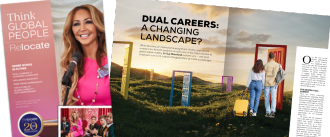

 Magazine
Magazine